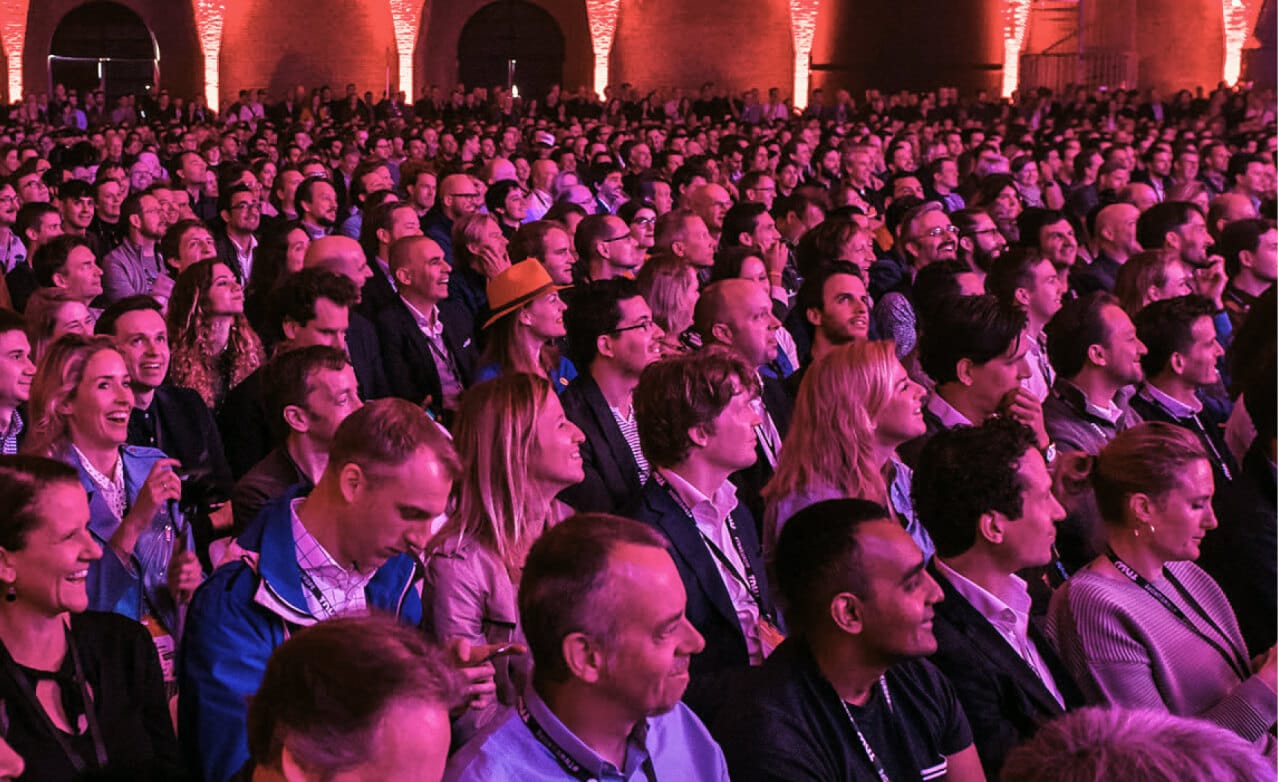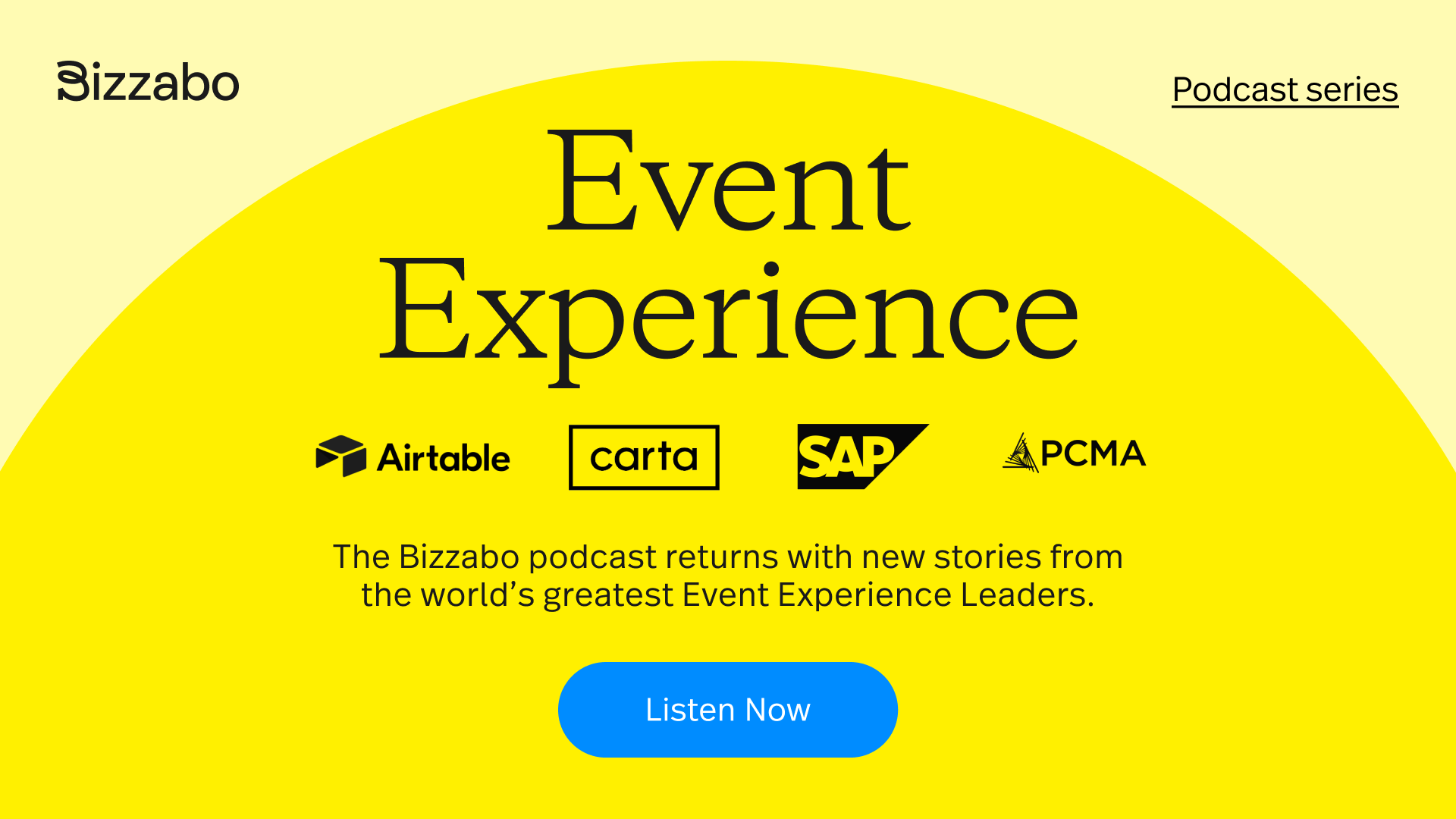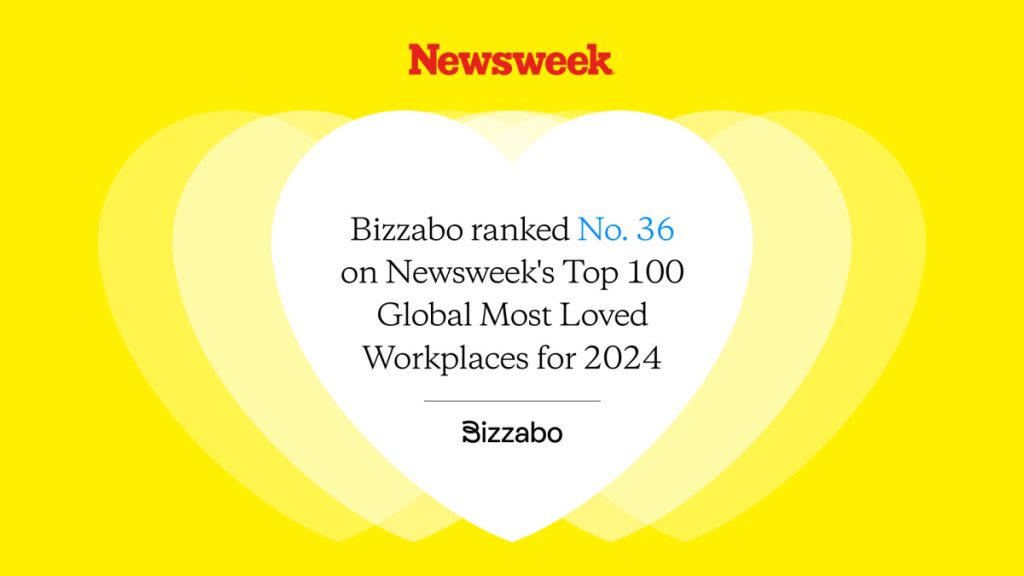The Complete Guide to Event Marketing for 2024


Looking ahead to the dynamic landscape of 2024, event marketing stands as an essential pillar for event organizers seeking genuine connections with their audiences. Whether you’re planning a local gathering or an international conference, the art of event marketing can give your brand the competitive edge it needs.
Keep reading this comprehensive event marketing guide to discover the most effective strategies and tips to make your event marketing endeavors a roaring success.
What Is Event Marketing?
Event marketing is the strategic planning, execution, and promotion of events to achieve specific goals. These goals include increasing brand awareness, engaging with target audiences, generating leads, and fostering customer loyalty.

An effective event marketing strategy involves creating and organizing events that provide incredible experiences and significant value for attendees while also serving as platforms for businesses to showcase their products, services, or ideas.
How To Build an Event Marketing Strategy
Planning an event without a well-defined marketing strategy is akin to setting sail without a compass. The vast seas of event planning and execution are riddled with potential pitfalls and unforeseen challenges, and it’s a robust marketing strategy that steers the ship toward success.
Creating an effective marketing strategy involves understanding your audience, setting clear objectives, and leveraging the right promotional tools. In this section, we’ll guide you step-by-step on how to build an event marketing strategy that resonates with your target audience and ensures your event achieves its intended goals and return on investment (ROI).
Step 1: Define Your Event Goals and Objectives
Defining and measuring event success is just as important as the event itself. To maximize the impact of event marketing strategies, setting the right goals and using relevant key performance indicators (KPIs) is crucial.
Start creating your long-term goals with these two frameworks to achieve remarkable outcomes:
- SMART goals: Goals that are specific, measurable, achievable, relevant, and timely.
- CLEAR goals: Goals that are collaborative, limited, emotional, appreciable, and refinable.
For example, if you host a webinar expecting 500 attendees, you should receive 250 RSVPs in the first two weeks. Then, choose relevant KPIs — such as number of registrations, gross revenue, or attendee satisfaction — to measure event success at your event.
Learn more about the most important KPIs for event marketing: “23 Important KPIs for Measuring Event Success.”
Step 2: Identify Your Target Audience
Who is your intended audience for this event? Creating detailed buyer personas based on demographics, preferences, pain points, and motivations will help you answer this question. Once you clearly grasp your target audience, you can fine-tune your marketing approach and platforms to establish a meaningful connection with them.
If you want more help mapping out your attendee journeys, we have you covered: “6 Steps for Mapping a Meaningful Event Attendee Journey.”
Step 3: Establish a Budget and Allocate Resources Accordingly
Strategic event budgeting can take your event from good to unforgettable. With the available budget in your mind, allocate funds for venue, marketing, staff, and more while prioritizing key aspects and keeping a contingency fund for unexpected costs.
It’s essential to monitor your spending and adjust as needed. After the event, review your budget execution for insights that can enhance future planning.

Step 4: Select the Right Event Format and Type
Choosing the appropriate event type is a decision that can greatly influence your success. Your event’s format is like the canvas upon which you paint your brand’s story, and it must resonate with your goals and audience.
To select the right event type, consider the level of engagement needed, the message you want to convey, and the experience you want attendees to have.
- Trade shows: Perfect for showcasing products and networking with industry peers. They offer face-to-face interactions and opportunities for business collaborations.
- Conferences: Ideal for thought leadership, in-depth discussions, and connecting experts. Conferences can establish your brand as a knowledge hub.
- Webinars: Great for sharing expertise remotely, educating your audience, and generating leads. Webinars are cost-effective and can reach a broad online audience.
- Workshops/seminars: Effective for skill-building and fostering direct interaction. These smaller-scale events facilitate meaningful connections.
- Virtual events: A versatile option for engaging global audiences without physical constraints. They allow for creative digital experiences.
Step 5: Choose a Compelling Event Theme and Messaging
A well-chosen theme transforms your event into an immersive experience with a unique atmosphere. It should draw attendees in, guide their journey, and leave them with a profound sense of connection to both the event and your brand.
- Captivate attendees: Your event theme is not just a tagline. It’s a complete package to entertain your participants. Aim to connect with your audience personally by considering their desires, aspirations, and pain points. This would make them feel like the event was designed just for them.
- Reflect your brand: The theme of your event is what will influence the attendees and make your brand known to them. Infuse your brand’s values, colors, and style into the theme to create a cohesive and recognizable experience.
- Meaningful messages: Craft messages that speak to attendees’ aspirations, challenges, and interests. Make them feel that attending your event will provide valuable solutions and opportunities.
Step 6: Decide on a Date, Location, and Venue
You probably wouldn’t want your attendees to be engaged in some other activity on the day of your event, right? Be sure to set a date that suits your audience’s availability and considers factors like holidays and other industry events.
Similarly, find a convenient venue for attendees that complements your event’s purpose. And always select a venue that accommodates your event’s size and requirements.
Not sure where to start when choosing an event venue? We’ve created a comprehensive guide for you: “10 Tips for Choosing the Perfect Conference Venue.”
Step 7: Choose an Event Marketing Software Partner
Event marketing software that handles all the nitty gritty can be a game changer, giving you a trusted partner for all your event management and promotion tasks.
Look for an event marketing software that manages registrations effortlessly, excels in promotional strategies, and helps you achieve your digital event marketing goals. For example, It should have features like automated email campaigns and social media integration to expand outreach. Additionally, your event marketing software should provide data insights to refine and optimize your strategies.

Step 8: Build the Event Website and Set Up Registration
Your website is the digital real estate of your event business. Turn it into a lead-generating powerhouse by designing an informative and user-friendly event website. Ensure it is responsive, is easy to navigate, and provides clear details about the event.
Once you’ve got the attention of potential attendees, it’s time to capture their information efficiently by setting up a simple and straightforward registration process. Avoid confusion and long questionnaires to ensure the maximum number of attendees pass through the initial stage and become a part of an exciting event journey.
Want to learn more about building the perfect event website and registration? Read “How To Build the Perfect Registration with Event Landing Page Examples.”
Step 9: Design Event Branding and Materials
Branding isn’t just stamping your logo on a few banners and flyers; it’s about crafting a visual identity that reflects your event’s theme, messaging, and values.
The best way to market an event is to first build a strong brand identity for your event. Here are some of the critical strategies for creating a strong brand:
- Logo development: Your event logo should encapsulate the core message and personality of the event. The colors, fonts, and overall design elements should reflect the essence of the event, giving attendees a clear visual cue about what to expect.
- Banners and signage: Effective event navigation relies on banners and signage strategically placed throughout the venue. Ensure they’re informative and visually aligned with the event’s branding to enhance the overall experience.
- Print materials: Flyers, brochures, and pamphlets are excellent opportunities to communicate key event details and engage your audience. Incorporate your branding elements into these materials to maintain a consistent look and feel.
- Digital materials: Think beyond physical materials. Focus on digital marketing by creating assets like social media graphics, email templates, and website banners that carry your event’s visual identity across online platforms.
Pro tip: One of the most crucial event marketing tips is to work with professional graphic designers who specialize in event branding. They can bring your vision to life, ensuring the design elements are aesthetically pleasing and aligned with your event’s goals.
17 Content Marketing Tactics To Generate Buzz for Your Event
Content marketing can be the differentiator you need, transforming a well-planned event into a highly-anticipated occasion. The right content strategy can amplify your event’s reach and impact, from the pre-event buzz to post-event discussions.
In this section, we will delve into 17 powerful content marketing tactics that promise to generate buzz, foster engagement, and ensure your event is the talk of the town.
1. Teaser Content
Release teasers such as short videos, GIFs, or sneak peeks of what attendees can expect at the event. Highlight key speakers, performers, or exclusive product launches to pique interest.
2. Blog Posts and Articles
Publish blog posts and articles related to the event’s theme or topics that will be discussed. Share valuable insights and information that would attract your target audience.
3. Guest Contributions
Invite guest bloggers or industry influencers to contribute articles or insights about the event. This can help expand your reach to their followers and build credibility for your event.
4. Webinars and Live Streams
Conduct pre-event webinars or live streams with speakers or experts participating in your event. Offer a preview of their presentations and allow the audience to ask questions to create an interactive experience.
5. Email Campaigns
Send out personalized and engaging emails to your mailing list. Include event details, highlights, and exclusive offers to entice recipients to register and attend.
6. Infographics and Visuals
Create visually appealing infographics or images that showcase event statistics, interesting facts, or the event’s schedule. Share these on social media and your website to attract attention.
7. Social Media Campaigns
Leverage all significant social media platforms to share event updates, countdowns, and behind-the-scenes glimpses. Use event-specific hashtags and encourage attendees to do the same.
8. Contests and Giveaways
Organize social media contests or giveaways related to the event. Offer free event passes, merchandise, or exclusive access to winners.
9. Podcasts and Interviews
Collaborate with industry experts and influencers to create podcast episodes or interview series in which they discuss event-related topics and promote the event simultaneously.

10. User-generated Content (UGC)
Encourage attendees and potential attendees to create UGC related to the event. Share and repost their content, showing that you value their engagement.
11. Virtual Networking Opportunities
If you’re planning an in-person event, create virtual networking opportunities before the event. This can include forums, discussion groups, or virtual meetups where attendees can connect.
12. Partnerships and Cross-promotion
Partner with other relevant organizations or brands to cross-promote the event. Share each other’s content and leverage each other’s audience reach.
13. Interactive Quizzes or Polls
Create interactive quizzes or polls related to the event’s theme. This will engage your audience and provide valuable insights into their preferences.
14. Interactive Maps
For a physical event with multiple booths or areas, create an interactive map that attendees can explore online. This will help them plan their visit and understand the event layout.
15. Storytelling Campaigns
Craft compelling stories related to the event theme or the people involved. Share these stories across your platforms to evoke audience emotions and connect with them on a deeper level.
16. Flashback Content
If your event is recurring, share highlights and memories from previous editions. This can create nostalgia and encourage past attendees to return while piquing the interest of new ones.
17. Daily Countdowns
Run a countdown campaign in the days leading up to the event. Each day, reveal new and exciting information, such as a fun fact, speaker profile, or entertainment lineup.
17 Tactics To Maximize Onsite Impact of Your Event Marketing Strategy
Once you’ve generated buzz and anticipation leading up to your event, the real challenge begins: ensuring that the event delivers on its promise and leaves an indelible mark on attendees. But how do you harness the potential of every interaction, every booth, and every keynote to amplify your event’s impact?
Onsite tactics are pivotal in transforming your event from memorable to unforgettable. Here are 17 tried-and-tested tactics that will elevate the onsite experience, ensuring that your event marketing strategy succeeds and leaves attendees eager for more.
- Branded booths and displays: Set up eye-catching booths and displays that showcase your brand, products, or services. Use branded banners, posters, and interactive elements to attract attendees and boost brand awareness.
- In-booth social media studio: Provide a mini-studio for attendees to create and share short videos or live streams about their event experience. Add relevant props or prompts to make it engaging.
- Product demonstrations: Offer live product demonstrations to showcase the features and benefits of your products or services. Allow attendees to experience firsthand how your offerings can solve their pain points.
- Promotional giveaways: Distribute branded promotional items such as pens, notepads, tote bags, or tech gadgets. Giveaways serve as reminders of your brand even after the event ends.
- Themed photo contests: Launch a themed photo contest related to your event or brand. Encourage attendees to take creative photos and share them with a specific hashtag on social media.
- Interactive experiences: Create interactive experiences that engage attendees. This could include virtual reality or augmented reality demos, interactive games, photo booths, or virtual experiences related to your brand.
- Contests and challenges: Organize on-site contests or challenges encouraging attendees to participate and win prizes. Options include trivia quizzes, scavenger hunts, or social media challenges.
- Expert Q&A sessions: Host Q&A sessions with industry experts or your company representatives so attendees can ask questions and gain valuable insights, which builds trust in your brand.
- Live entertainment: Consider providing live entertainment like musical performances, magic shows, or comedy acts, all of which can attract foot traffic to your booth and create a memorable experience.
- Workshops and training sessions: Conduct workshops or mini-training sessions on relevant topics to position your brand as an industry authority and offer attendees value.
- Social media engagement walls: Set up social media walls displaying real-time posts from attendees using event-related hashtags. This encourages attendees to share their experiences and creates social proof of your event’s success.
- VIP lounges or hospitality areas: Offer exclusive spaces for special guests, partners, or high-value customers to provide a more personalized experience and foster relationships.
- Brand ambassadors and influencers: Use brand ambassadors or influencers to interact with attendees and promote your brand. Their influence can attract more people to your booth.
- Surveys and feedback stations: Set up stations for attendees to provide feedback or take surveys about their event experience. This helps you gather valuable insights for future improvements.
- Lead capture and data collection: Use lead capture tools like QR codes, business card scanners, or interactive touchscreens to collect attendee information for follow-up marketing.
- Photo opportunities: Create photo-worthy scenes or backdrops related to your brand or event theme. Encourage attendees to take pictures and share them on social media.
- Branded food and beverage: Offer branded snacks or drinks that tie into your brand identity. This not only provides sustenance but also leaves a lasting brand impression.
Post-event Follow-up and Analysis
Engage your attendees even after the curtains have closed to ensure your event leaves a lasting impression. Here are some key strategies to amplify your efforts and contribute to a successful 365-day event marketing strategy.
Send Post-event Thank-you Emails
Want your attendees to keep an eye on their inboxes even after your event has ended?
- Send a sincere “thank you” email to every attendee as a digital token of appreciation.
- Keep the excitement alive by sharing event highlights and recaps through emails. Provide exclusive access to on-demand content that encapsulates the essence of the event and provides additional value to attendees.
- Personalize and segment emails by session or attendance, which ensures that each recipient feels seen and valued for their participation.
Measure Event Success Against Predefined Goals
Success is measurable when it aligns with predefined goals. To see how well you did, ask attendees what they liked and what could be better.
- Gather their feedback through well-crafted surveys. Listening to your audience will help optimize your event strategy based on actual suggestions.
- Use relevant KPIs to examine attendance numbers, engagement levels, social media reach, and other relevant metrics to grasp your event’s effectiveness.
- Calculate your event’s ROI to showcase its value to stakeholders and make informed future decisions.
Learn From Feedback and Insights
Every piece of feedback is a stepping stone to growth. Learn from the feedback and insights gained from attendees to identify strengths and areas for improvement.
For example, let’s say you organized a conference, and afterward some attendees said they needed help to follow specific points in the presentation due to their complexity. You can use this feedback and simplify complex concepts using relatable examples and straightforward language to avoid confusing attendees with jargon.
Additionally, create a feedback loop by asking attendees for input during or after each session to spot any ongoing issues and adjust your approach for current and future events.
Read “51 Event Survey Questions You Need To Ask For the Best Insights” to find event survey questions of all varieties to help you measure success and deliver the best events possible.
Nurture Event-generated Leads
After your event has ended, you can nurture event-generated leads by strategically implementing certain practices. Here are a few key strategies to consider:
Lead nurturing campaigns: Develop targeted campaigns that deliver valuable content and information to event-generated leads. These campaigns guide potential customers through decision-making, building trust and engagement over time.
Personalized follow-ups: Tailor your follow-up communications based on individual interests and interactions during the event. This personalized approach demonstrates genuine attention and understanding, increasing the chances of meaningful engagement and future interactions.
Create a Long-term Event Marketing Strategy
Creating a sustainable impact requires a comprehensive long-term event marketing strategy. Start by crafting a working strategy that continually evolves and builds upon your event’s successes. Identify winning elements and address challenges, incorporating lessons learned into future events.
Keep your event’s content from gathering dust. Repurpose your event content to create a 365-day content calendar. Webinars, blog posts, social media updates — the possibilities are endless!
3 Real-world Examples of Successful Event Marketing
If you’re wondering how to take your event marketing to the next level, we have three examples of event marketing success stories to inspire.
1. The Barbie Movie
The recent marketing campaign for the release of “Barbie” stands as a shining example of successful event marketing. The campaign went far beyond the typical movie promotions by cleverly leveraging partnerships and taking the audience on an exciting journey.
From transforming a real-life Malibu mansion into a life-size Barbie Dream House available for Airbnb stays to collaborating with diverse brands for unique tie-ins like fashion and gaming, Barbie’s marketing team effectively engaged their audience through memorable connections.
Themed activities, giveaways, and unique items like Ken-inspired roller skates and surfboards added an experiential dimension to the campaign. These offerings encouraged engagement and participation, making the audience feel like an integral part of the event. This event-based approach didn’t just promote the movie; it turned the marketing into a cultural movement that excited people.
A thrilling element in the Barbie marketing efforts is the power of strategic branding and storytelling. The campaign resonated with multiple generations by embracing girl power, using Barbie’s iconic pink color palette, and celebrating the character’s evolution over the years. They smartly tapped into the collective nostalgia and paired it with a modern twist that celebrates women’s strength.
Lastly, the campaign strategically leveraged various platforms, including social media, traditional media, and partnerships with retailers, to maximize visibility and engagement, ensuring that the campaign reached a broad and diverse audience.
2. Refinery29’s 29Rooms
Refinery29’s 29Rooms is an annual interactive art exhibition praised for its innovative and thought-provoking approach to art and culture. The event has been a significant success, attracting thousands of attendees each year.
There are several reasons why 29Rooms has been such a successful event marketing campaign. The most prominent one is that it is well-branded and visually appealing. The 29 rooms are all designed by different artists and creative thinkers, each with a unique and eye-catching aesthetic. This makes the event visually appealing and memorable for attendees.
Secondly, the event is interactive and engaging. The rooms are designed to encourage visitors to explore, play, and learn.
Additionally, Refinery29 uses a variety of channels to promote 29Rooms, including social media, traditional media, and strategic partnerships, ensuring that the event creates sufficient buzz. The event has been featured in major media outlets, including The New York Times, The Wall Street Journal, and Vogue. This has helped position Refinery29 as a leading voice in fashion, beauty, and lifestyle.
Overall, the event has helped raise brand awareness, build relationships with consumers, and generate positive media coverage.
3. Apple Special Events
Apple is known for its highly anticipated product launches and special events, all of which generate massive buzz and media coverage and create excitement around their new products and services.
Apple’s successful events stem from the company’s mystery-filled approach, which involves withholding product details until the event and building anticipation. These events boast top-notch production and leverage advanced tech for captivating visuals. Their comprehensive promotions and events align perfectly with Apple’s brand and resonate with their audience’s expectations by emphasizing innovation and creativity.
Here are some specific pointers that contribute to Apple’s success:
- Raising awareness of new products and services: Apple Special Events are always major news events that get the word out about new products and services. For example, the 2020 iPhone event generated more than 100 million views on YouTube and was the most-watched product launch event of the year.
- Building excitement among consumers: Apple’s special events generate demand for new products and services. A prime example is the 2021 Apple Watch event, which resulted in a 50% increase in sales of the product.
- Generating positive media coverage: Apple’s special events always generate positive media coverage, which helps to strengthen the company’s reputation. For example, the 2022 iPad event was praised by tech reviewers for its innovative new features.
5 Event Marketing Tips
Implementing these event marketing tips can be instrumental to elevating your event’s reach and impact, ensuring you build a loyal attendee base while continually attracting new audiences.
- Know your audience inside and out: Before diving into any promotional activities, take the time to understand who you’re targeting. What are their preferences, challenges, and behaviors? By crafting an event experience tailored to their needs and interests, you’ll be more likely to draw their attention and encourage attendance.
- Leverage social media: Don’t just announce your event on social media; create a holistic campaign around it. Use engaging visuals, host live Q&A sessions, and even consider partnering with influencers or industry experts to expand your reach. Utilize event-specific hashtags to curate conversations and generate pre-event excitement.
- Personalized communication: Whether sending out email invites, SMS reminders, or digital flyers, ensure that your messaging speaks directly to the recipient. Personalized communication can increase engagement rates and make prospective attendees feel valued.
- Maximize partnerships and sponsorships: Collaborate with industry partners, sponsors, or local businesses to expand your event’s visibility. Co-hosting webinars, co-writing promotional content, or offering mutual discounts can not only increase your event’s reach but also add value for your attendees.
- Feedback is gold: After the event, seek feedback from attendees. Understand what worked, what didn’t, and where improvements can be made. This aids in refining future strategies and helps in maintaining a strong relationship with your audience, making them more likely to participate in subsequent events.
6 Event Marketing Resources for Upskilling
Take your event marketing skills up a notch with these six resources:
- Top 12 Event Planning Certifications You Need To Propel Your Career
- Event Success: Maximizing the Business Impact of In-person, Virtual, and Hybrid Experiences by Alon Alroy, Eran Ben-Shushan, and Boaz Katz
- The Event Experience podcast
- The Event Marketing Playbook: A Step-by-Step Guide to Planning, Organizing, and Promoting Successful Events
- Experiential Marketing: Secrets, Strategies, and Success Stories from the World’s Greatest Brands
- Top 30 Websites for Event Planners
Master the Art of Event Marketing with Bizzabo
According to our in-person B2B conference survey report, event organizers are facing many challenges, including integrating events into their overall marketing plan. That’s precisely where Bizzabo comes in as your event technology software partner.
With Bizzabo, you can create and execute successful events to achieve your marketing goals.
- Streamline your event planning and management: Bizzabo’s platform can streamline all aspects of your event planning and management, from registration to logistics. This can save you time and money and help you ensure that your event runs smoothly.
- Personalize your event marketing: Bizzabo’s data-driven insights can help you to personalize your marketing efforts and reach your target audience with the right message at the right time.
- Increase attendee engagement: Bizzabo offers a variety of features that can increase attendee engagement, such as live polling, Q&A, and networking tools. This can help you to create a more interactive and memorable event experience for your attendees.
- Generate leads and sales: Bizzabo can help you generate leads and sales by providing detailed insights into your attendees. This information can enable you to target your marketing campaigns more effectively and close more deals.
- Measure the success of your event: Bizzabo’s analytics dashboard provides detailed insights into the ROI of your event marketing campaigns, giving you the insights you need to make every event an even greater success.
If you’re looking for a partner to help you master the art of event marketing, Bizzabo is the right choice.



